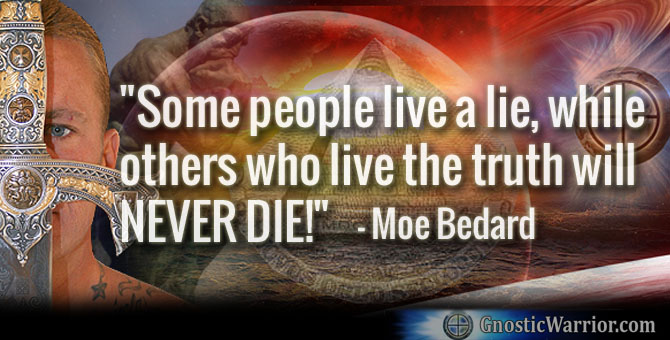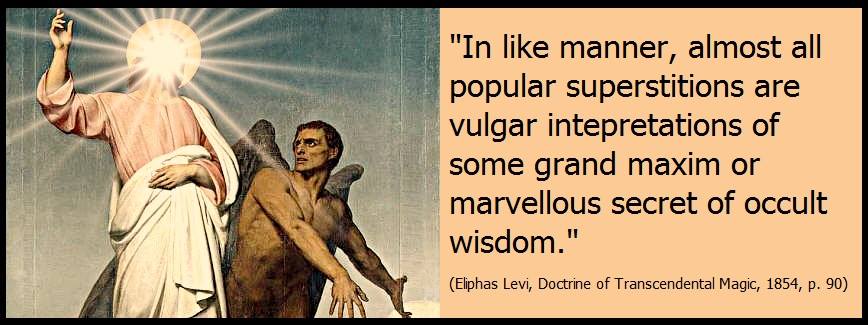” Such is the insufficient sketch of elemental beings void of divine spirit, given by one whom many with reason believed to know more than he was prepared to admit in the face of an incredulous public.
Page 287
In the following chapter we will contrive to explain some of the esoteric speculations of the initiates of the sanctuary, as to what man was, is, and may yet be. The doctrines they taught in the Mysteries — the source from which sprang the Old and partially the New Testament, belonged to the most advanced notions of morality, and religious revelations. While the literal meaning was abandoned to the fanaticism of the unreasoning lower classes of society, the higher ones, the majority of which consisted of Initiates, pursued their studies in the solemn silence of the temples, and their worship of the one God of Heaven.
The speculations of Plato, in the Banquet, on the creation of the primordial men, and the essay on Cosmogony in the Timaeus, must be taken allegorically, if we accept them at all. It is this hidden Pythagorean meaning in Timaeus, Cratylus, and Parmenides, and a few other trilogies and dialogues, that the Neo-platonists ventured to expound, as far as the theurgical vow of secrecy would allow them. The Pythagorean doctrine that God is the universal mind diffused through all things, and the dogma of the soul’s immortality, are the leading features in these apparently incongruous teachings. His piety and the great veneration Plato felt for the MYSTERIES, are sufficient warrant that he would not allow his indiscretion to get the better of that deep sense of responsibility which is felt by every adept. “Constantly perfecting himself in perfect MYSTERIES, a man in them alone becomes truly perfect,” says he in the Phaedrus.
He took no pains to conceal his displeasure that the Mysteries had become less secret than formerly. Instead of profaning them by putting them within the reach of the multitude, he would have guarded them with jealous care against all but the most earnest and worthy of his disciples. While mentioning the gods, on every page, his monotheism is unquestionable, for the whole thread of his discourse indicates that by the term gods he means a class of beings far lower in the scale than deities, and but one grade higher than men. Even Josephus perceived and acknowledged this fact, despite the natural prejudice of his race. In his famous onslaught upon Apion, this historian says: “Those, however, among the Greeks who philosophized in accordance with truth, were not ignorant of anything . . . nor did they fail to perceive the chilling
Page 288
superficialities of the mythical allegories, on which account they justly despised them. . . . By which thing Plato, being moved, says it is not necessary to admit any one of the other poets into ‘the Commonwealth,’ and he dismisses Homer blandly, after having crowned him and pouring unguent upon him, in order that indeed he should not destroy, by his myths, the orthodox belief respecting one God.”
Those who can discern the true spirit of Plato’s philosophy, will hardly be satisfied with the estimate of the same which Jowett lays before his readers. He tells us that the influence exercised upon posterity by the Timaeus is partly due to a misunderstanding of the doctrine of its author by the Neo-platonists. He would have us believe that the hidden meanings which they found in this Dialogue, are “quite at variance with the spirit of Plato.” This is equivalent to the assumption that Jowett understands what this spirit really was; whereas his criticism upon this particular topic rather indicates that he did not penetrate it at all. If, as he tells us, the Christians seem to find in his work their trinity, the word, the church, and the creation of the world, in a Jewish sense, it is because all this is there, and therefore it is but natural that they should have found it. The outward building is the same; but the spirit which animated the dead letter of the philosopher’s teaching has fled, and we would seek for it in vain through the arid dogmas of Christian theology. The Sphinx is the same now, as it was four centuries before the Christian era; but the OEdipus is no more. He is slain because he has given to the world that which the world was not ripe enough to receive. He was the embodiment of truth, and he had to die, as every grand truth has to, before, like the Phoenix of old, it revives from its own ashes. Every translator of Plato’s works remarked the strange similarity between the philosophy of the esoterists and the Christian doctrines, and each of them has tried to interpret it in accordance with his own religious feelings. So Cory, in his Ancient Fragments, tries to prove that it is but an outward resemblance; and does his best to lower the Pythagorean Monad in the public estimation and exalt upon its ruins the later anthropomorphic deity. Taylor, advocating the former, acts as unceremoniously with the Mosaic God.

Moe is the founder of GnosticWarrior.com. He is a father, husband, author, martial arts black belt, and an expert in Gnosticism, the occult, and esotericism.

![How one in the province of the Northumbrians, rose from the dead, and related many things which he had seen, some to be greatly dreaded and some to be desired [Circ. 696 A.D.] | Book 5 | Chapter 11 How one in the province of the Northumbrians, rose from the dead, and related many things which he had seen, some to be greatly dreaded and some to be desired [Circ. 696 A.D.] | Book 5 | Chapter 11](https://www.gnosticwarrior.com/wp-content/plugins/contextual-related-posts/default.png)




